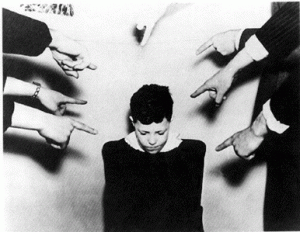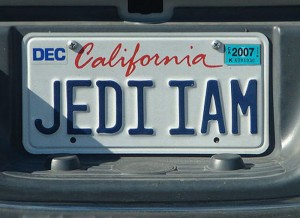31. A Question, a Confession

Now when evening came, Jesus was reclining at the table with the twelve disciples. As they were eating, He said, “Truly I say to you that one of you will betray Me.” Being deeply grieved, they each one began to say to Him, “Surely not I, Lord?” And He answered, “He who dipped his hand with Me in the bowl is the one who will betray Me. The Son of Man is to go, just as it is written of Him; but woe to that man by whom the Son of Man is betrayed! It would have been good for that man if he had not been born.” And Judas, who was betraying Him, said, “Surely it is not I, Rabbi?” Jesus said* to him, “You have said it yourself.” (Matthew 26:20-25)
Put yourself around that table with Jesus and the disciples. We find the disciples completely taken over by who was going to betray Christ; each asking: Surely not I Lord? And I have to ask myself that question: Surely not I, Lord?
The answer, unfortunately, is yes; I have betrayed my Lord and my God. My sins have been forgiven and paid for, and yet still I sin. I have wisdom and understanding, have even been given the mind of Christ; yet I continue to choose foolishly. I even have the Spirit of God living within me; yet I carry on as if my old nature alone lives within me. When faced with this question, I am forced to answer yes—I betrayed Christ.
So what must I do? I join with the Apostle Paul in this confession: Wretched man that I am! Who will set me free from the body of this death? Thanks be to God through Jesus Christ our Lord! So then, on the one hand I myself with my mind am serving the law of God, but on the other, with my flesh the law of sin. Therefore there is now no condemnation for those who are in Christ Jesus. (Rom 7:24-8:1)
I will give thanks for what Christ has done. I will rejoice that I am in Him. I will continue to be conformed in His image, continue to be transformed. I will choose to follow Him, serve Him, and make decisions that are according to His holiness and righteousness.
It should be noted that Judas’s question was different: “Surely it is not I, Rabbi?” There is a huge disconnect between Lord and Rabbi.
The Greek word for Lord is kurios, which is most often used for God’s name. The disciples even in this desperate moment acknowledge Christ’s divinity.
Rabbi on the other hand is a Hebrew word which means master or teacher, and it is a title which was used for Christ and other religious leaders. There is no equating with God in this title, no name of God, and no divinity within its confession. Was Judas unable to make the transition from Christ being a great teacher, certainly one worth following, to falling before Christ and proclaiming that He is God?
Perhaps this should be called the Judas Effect. So many people are willing to recognize Christ as a great teacher, but few will confess Him as Lord and Savior. Who is Christ to you?

 So I’m driving along the other day, and a guy in a BMW pulls up alongside me, and I notice his license plate: iPhone1. Interesting license plate. Also, my wife and I have been watching The Voice lately, and there was an artist who shared that he was gay, but also a singer. Then there are Harley owners. Bikes, gear, leathers, everything—it’s all about the brand.
So I’m driving along the other day, and a guy in a BMW pulls up alongside me, and I notice his license plate: iPhone1. Interesting license plate. Also, my wife and I have been watching The Voice lately, and there was an artist who shared that he was gay, but also a singer. Then there are Harley owners. Bikes, gear, leathers, everything—it’s all about the brand.